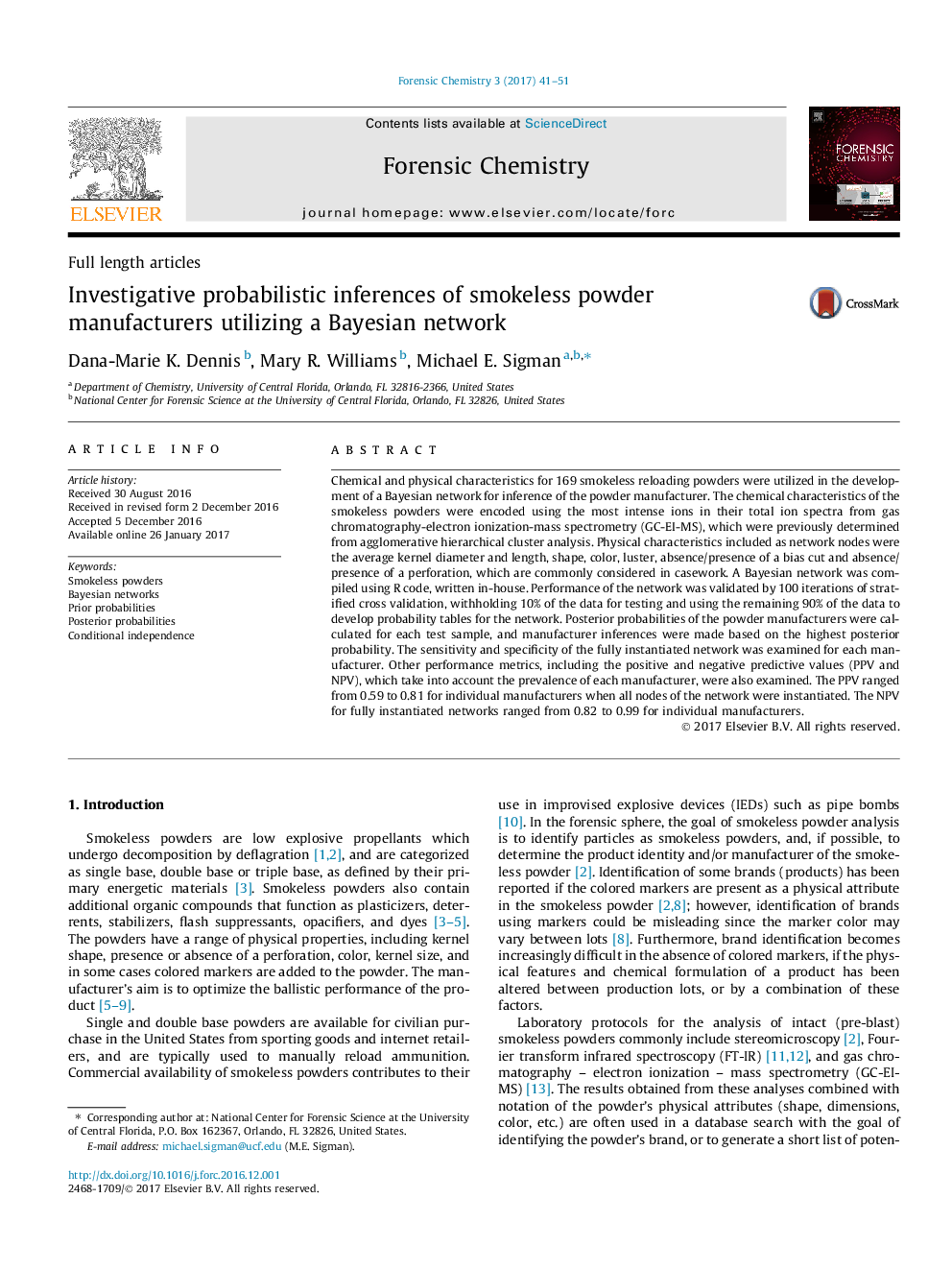| کد مقاله | کد نشریه | سال انتشار | مقاله انگلیسی | نسخه تمام متن |
|---|---|---|---|---|
| 4760199 | 1421910 | 2017 | 11 صفحه PDF | دانلود رایگان |
- Bayesian network inference of smokeless powder manufacturers.
- Bayesian network based on physical and chemical properties.
- Manufacturer inferred based on largest posterior probability.
- Network instantiation with full and partial information investigated.
- Overall cross validated manufacturer correct inference specificity was 0.74.
Chemical and physical characteristics for 169 smokeless reloading powders were utilized in the development of a Bayesian network for inference of the powder manufacturer. The chemical characteristics of the smokeless powders were encoded using the most intense ions in their total ion spectra from gas chromatography-electron ionization-mass spectrometry (GC-EI-MS), which were previously determined from agglomerative hierarchical cluster analysis. Physical characteristics included as network nodes were the average kernel diameter and length, shape, color, luster, absence/presence of a bias cut and absence/presence of a perforation, which are commonly considered in casework. A Bayesian network was compiled using R code, written in-house. Performance of the network was validated by 100 iterations of stratified cross validation, withholding 10% of the data for testing and using the remaining 90% of the data to develop probability tables for the network. Posterior probabilities of the powder manufacturers were calculated for each test sample, and manufacturer inferences were made based on the highest posterior probability. The sensitivity and specificity of the fully instantiated network was examined for each manufacturer. Other performance metrics, including the positive and negative predictive values (PPV and NPV), which take into account the prevalence of each manufacturer, were also examined. The PPV ranged from 0.59 to 0.81 for individual manufacturers when all nodes of the network were instantiated. The NPV for fully instantiated networks ranged from 0.82 to 0.99 for individual manufacturers.
86
Journal: Forensic Chemistry - Volume 3, March 2017, Pages 41-51
